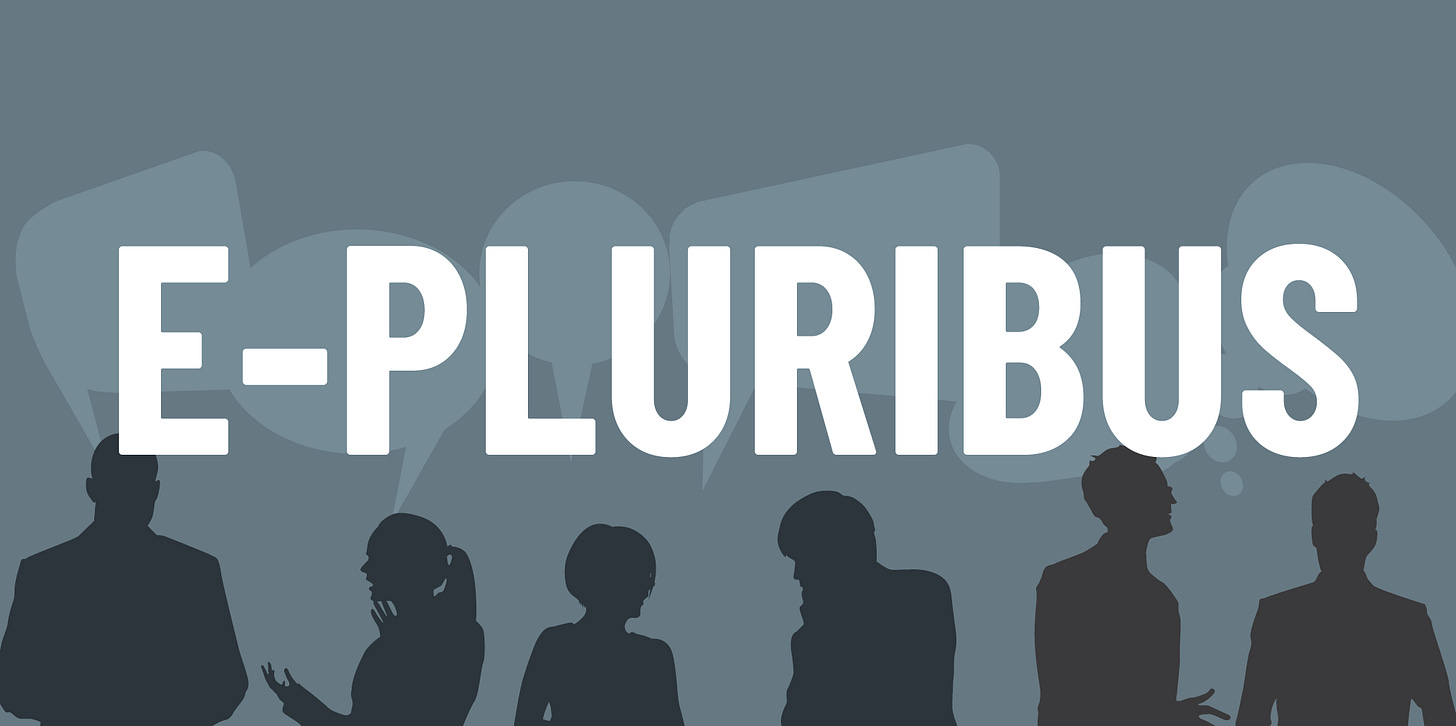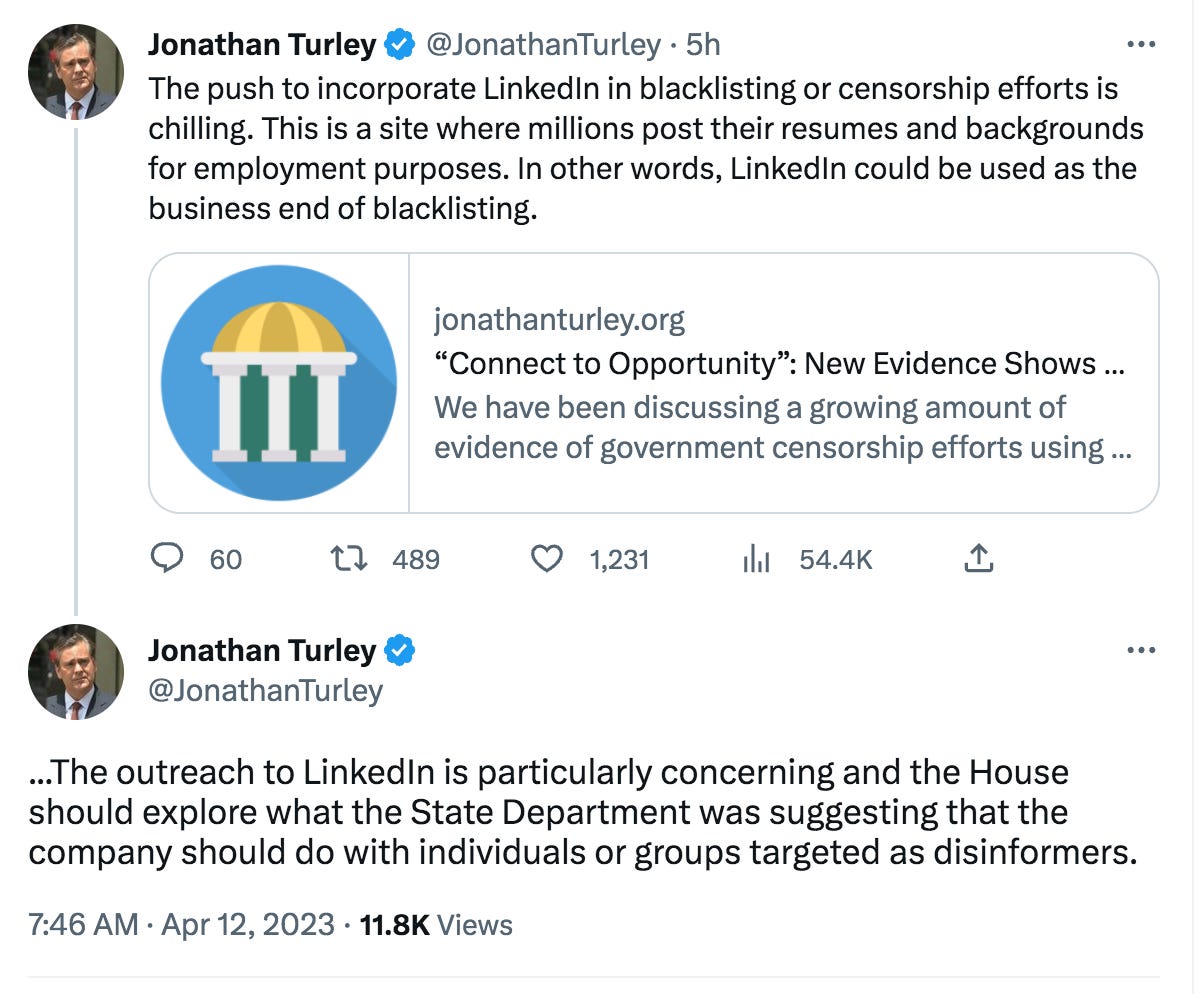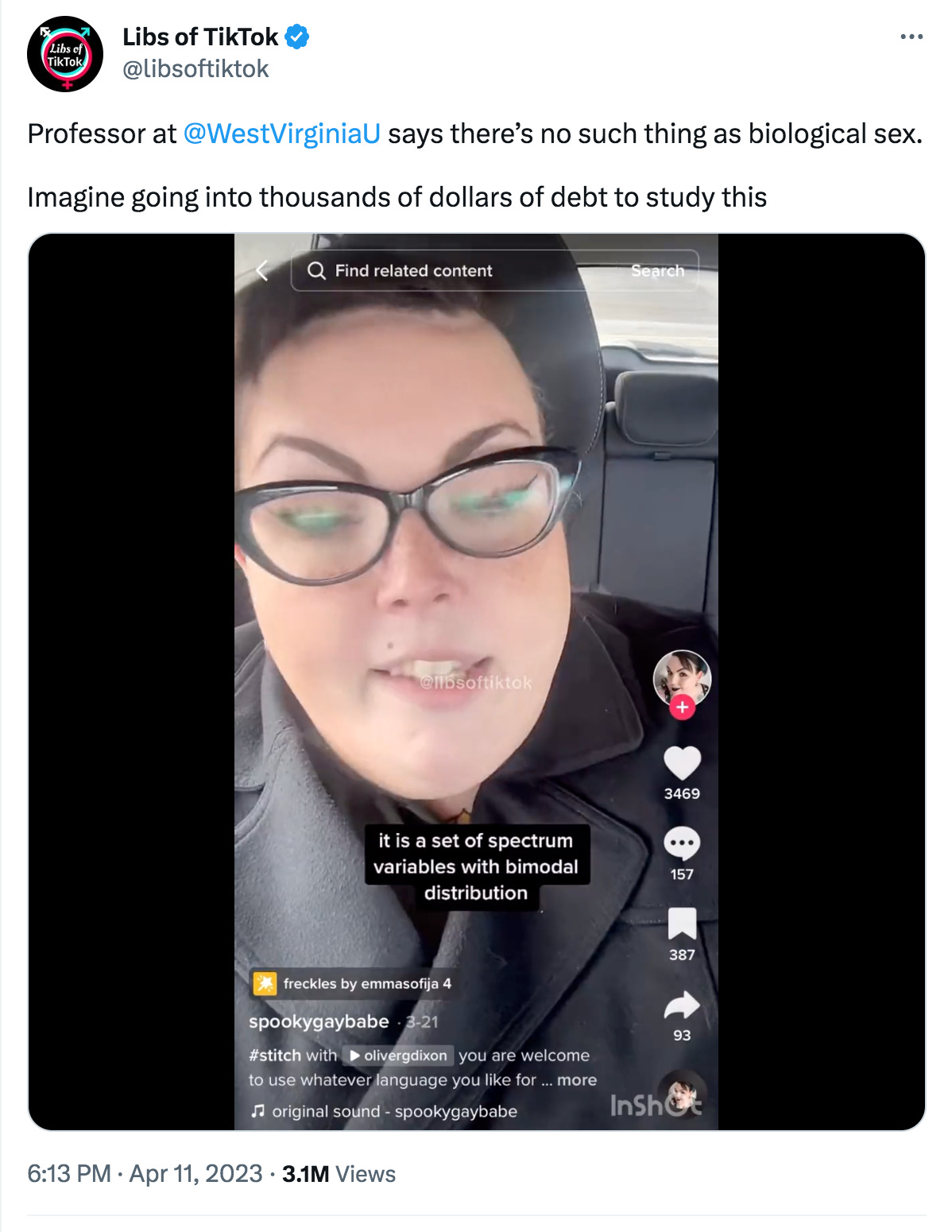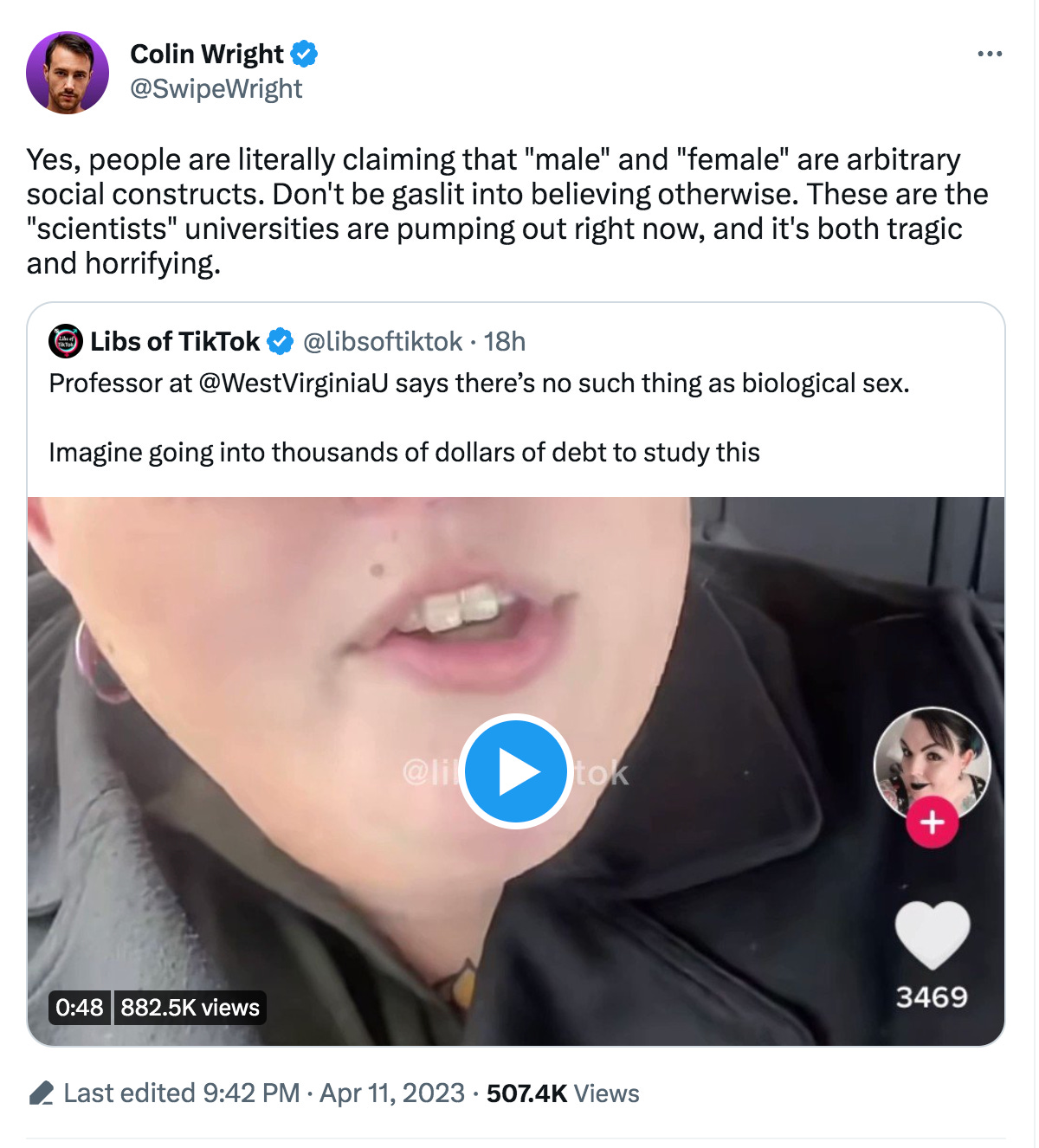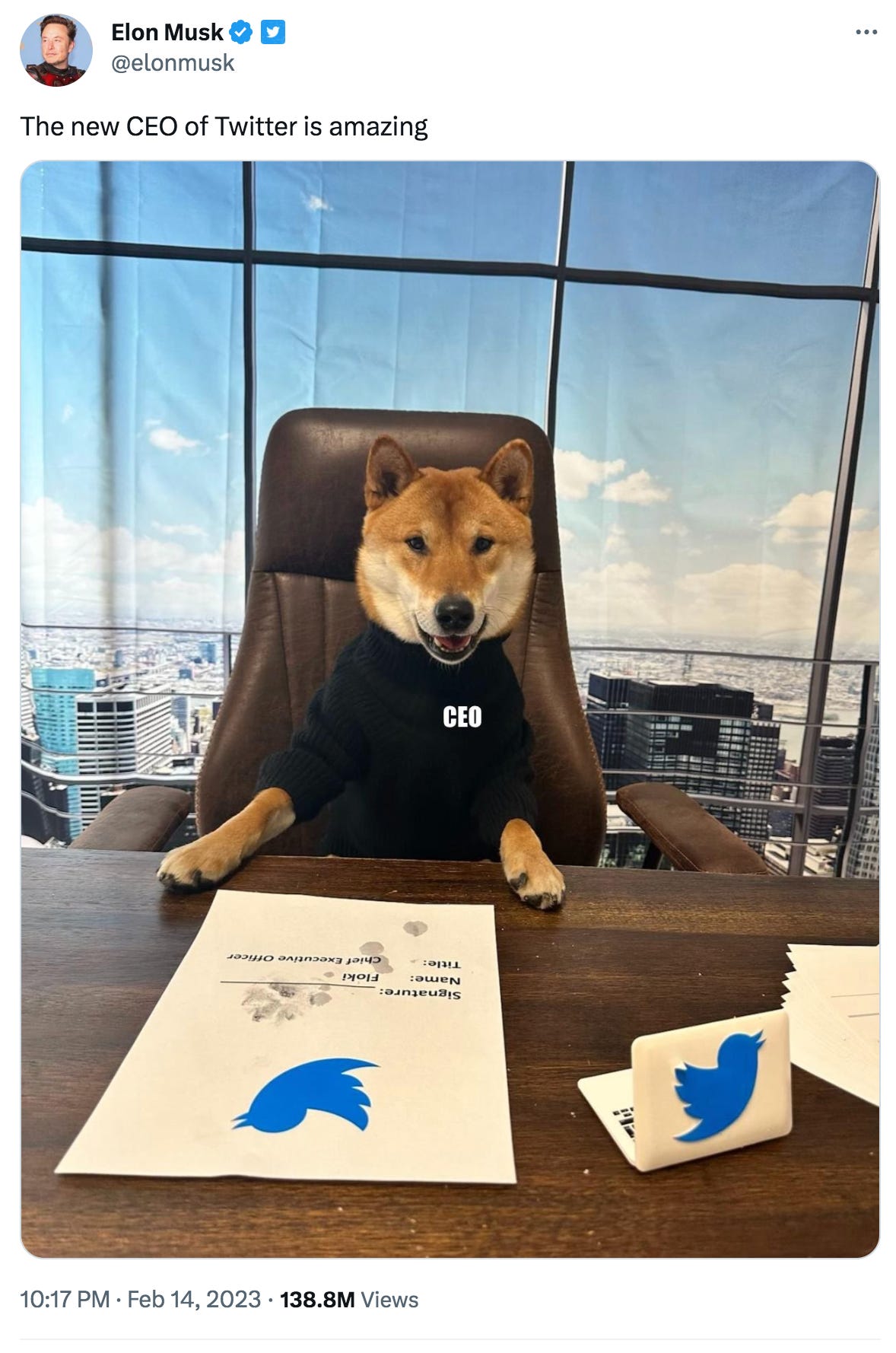E-Pluribus | April 12, 2023
In defense of merit; is 'objective' journalism past its prime; and more on Stanford and free speech.
A round-up of the latest and best writing and musings on the rise of illiberalism in the public discourse:
Heather Mac Donald: Merit Over Identity
One of the paradoxes of diversity, equity, and inclusion (DEI) ideology is that to overcome sex and race discrimination, we must actively and deliberately discriminate on the basis of sex and race. Heather Mac Donald at City Journal addresses the damage this does to the ideal that one’s identity should not determine the value of one’s accomplishments.
The diversity, equity, and inclusion (DEI) bureaucracy is the nemesis of the Enlightenment ideal of knowledge. It puts relentless pressure on every academic department to hire on the basis of race and sex, not on the basis of intellectual achievement. Every faculty search today is a desperate effort to find even remotely qualified minority or female candidates. Being female or a non-Asian minority confers an enormous advantage in the hiring and tenure process.
Yet despite this obsessive attention to diversity, many departments still do not pass the DEI proportionality test. So DEI bureaucrats are on a crusade to extirpate the sources of bias that allegedly stand in the way of proportional representation. Every colorblind objective test of academic skills—SAT, LSAT, or MCAT—is under attack as racist and is going down.
[ . . . ]
Scientific institutions are now reformulating research priorities to increase the diversity of federal grant recipients. The National Institutes of Health has shifted funding from basic science to research on health disparities and racism simply because black scientists do more research on these race topics and less on pure science.
Reality check: the reason why colleges are not proportionally diverse has nothing to do with bias or exclusion. The reason is large racial differences in academic skills. This is an uncomfortable subject, and one that is taboo on college campuses, but if we are going to indict American universities and other institutions for systemic racism, we should get our facts straight.
Read it all here.
Matt Yglesias: "Objective" Journalism Was A Business Model
Much in the media today consists of beating up on “the media,” and at times deservedly so. Lack of objectivity in reporting is often a point of contention, but at his Slow Boring site, Matt Yglesias writes that while “objectivity” was a business model of many pre-internet publications, current technology and the present-day media environment calls for a different paradigm.
But it really is worth saying that the ideal of the newspaper that speaks to everyone and for everyone wasn’t just a conceptual ideal, it was a business model. And to be clear, like objectivity itself, the universal newspaper was a regulative ideal, not a reality. Even in a town with no competition between newspapers, lots of families didn’t subscribe to the newspaper. But the goal was that everyone should subscribe, that the paper — the paper — was a big bundle of information services designed to be both comprehensive and inoffensive, and in principle, everyone should get it.
That doesn’t make sense as a contemporary business aspiration, in part because the landscape is so much more competitive and in part because the core information utility service is gone.
If you care a lot about having timely updates on sports, traffic, weather, and financial markets but don’t care that much about politics and government, you don’t really need a regular “news source.” You don’t need to subscribe to a magazine called TV Guide to know which shows are on which channels when. You don’t need to browse a newspaper to find out when that new movie about the Air Jordans is playing. But if you do write an article about politics, people are going to care how many readers it gets. Alternatively, a publication might (like this one!) have a business model that doesn’t rely on reaching a mass audience. Either way, though, while there’s a lot one could reasonably ask of a publication, it’s bound to end up being very different in tone and approach from the newspapers of “the good old days.” There’s just no way to keep the product similar while the underlying business model is revolutionized.
Read it all.
Vimal Patel: At Stanford Law School, the Dean Takes a Stand for Free Speech. Will It Work?
We have included several items on the recent Stanford Law School incident with a federal judge, but the fallout continues. At the New York Times, Vimal Patel reports on the dean’s strong defense of free speech and the responses to it, exploring whether or not it will really make a difference.
[O]n March 22, the dean, Jenny S. Martinez, released a lawyerly 10-page memo that rebuked the activists.
“Some students might feel that some points should not be up for argument and therefore that they should not bear the responsibility of arguing them,” she wrote. But, she continued, that “is incompatible with the training that must be delivered in a law school.”
She added, “I believe that the commitment to diversity, equity and inclusion actually means that we must protect free expression of all views.”
Free speech groups hailed Dean Martinez for what they said was a stirring defense of free expression.
“We need Dean Martinezes at every school where this is an issue right now,” Alex Morey, an official with the Foundation for Individual Rights and Expression, a free-speech group, said in an email.
The Stanford memo echoed a similar declaration by the University of Chicago in 2014, saying that it was committed to free speech and that students may not obstruct or otherwise interfere with speakers because of their views.
Since then, dozens of universities have signed onto what is now known as the Chicago statement. And yet, every year seems to bring new free-speech clashes, on the left and the right.
[ . . . ]
The question for Stanford and other institutions is whether the memo can ease tensions in this fraught and seemingly intractable political climate. In an era of high-pitched politics, living up to lofty free-speech principles can get messy on the ground.
Some free-speech advocates describe a delicate balancing act for any university, which must allow polarizing speakers a place at the podium while also allowing protesters to raise their voices in disagreement.
If things get out of hand, it can be hard to figure out when to draw the line and whom to blame.
Read the whole thing.
Around Twitter
Note: Twitter’s feud with Substack is still preventing embedding of tweets. We are considering Substack Notes as an alternative. Stay tuned.
Via Jonathan Turley, word that the State Department attempted to establish a relationship with LinkedIn as part of the effort to “fight disinformation”:
Via Libs of TikTok and Colin Wright, the continuing decline at our institutions of higher learning:
And finally, this could explain a lot:



